Christine Schweer knew early on that her son, Colten, faced some health complications.
Christine, a pediatric intensive care nurse living in the Midwest with her husband, Todd, and then 3-year-old daughter, Chloe, recalls feeling different during her pregnancy with Colten. Once Colten was born, little things started popping up, she says.
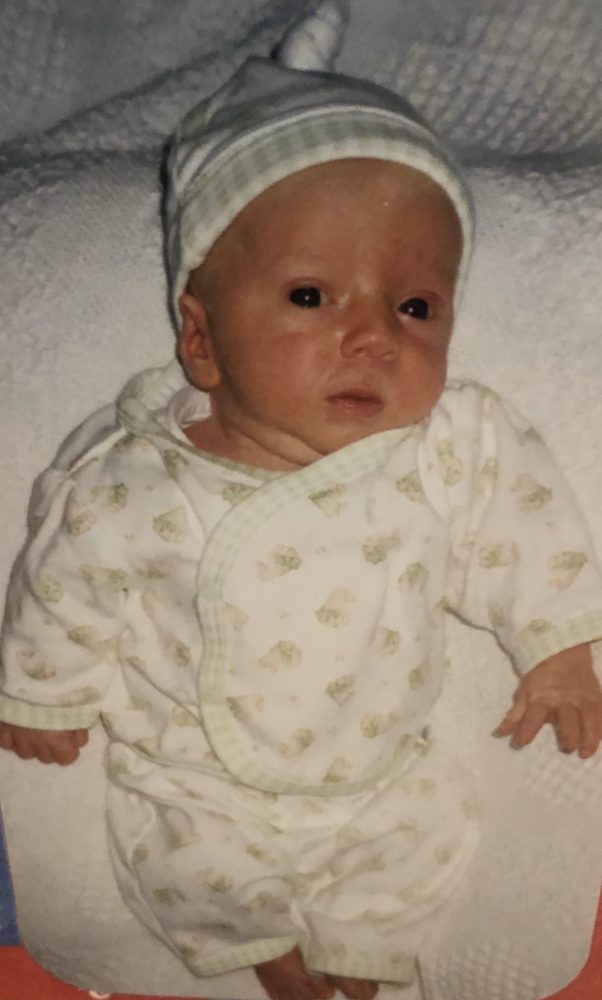
Over the next few months, Colten developed several symptoms: cold hands and feet, a sleepy demeanor, strange breathing and chronic, involuntary eye movements – a condition called nystagmus.
At this point, Colten had already gone through several emergency department visits, including an admission to the hospital for respiratory syncytial virus (RSV) and eventually unexplained heart failure. But after genetic testing and screening for cystic fibrosis, cancer and blood clots all came back negative, Colten and his parents and doctors were left confused.
Searching for an answer
Colten was 6 months old when two new symptoms arose. An occupational therapist thought Colten’s vision and hearing were waning, and an ophthalmologist confirmed the therapist’s suspicion.
Then, around 9 months old, Colten’s weight mysteriously began to skyrocket.
Meanwhile, the Schweers decided to relocate to California to be near family. Christine, who now works in the PICU at CHOC at Mission Hospital, transferred all of Colten’s records to CHOC. She began to schedule visits to a team of CHOC providers, including pediatrician Dr. Lauren Dwinell and pediatric cardiologist Dr. Anthony Chang.
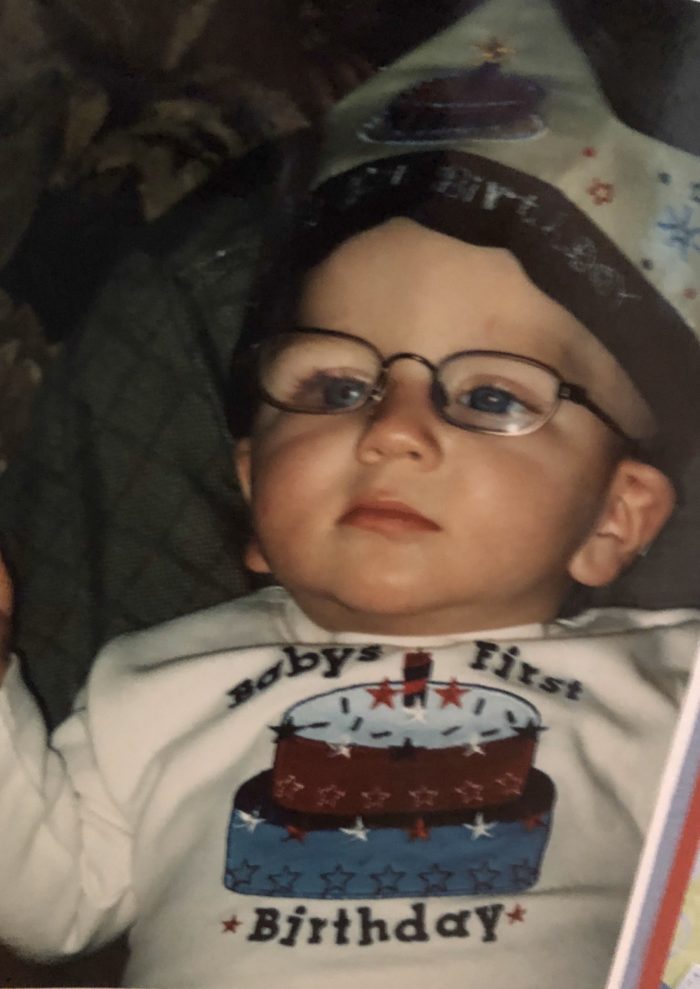
Armed with her signature beach bag full of Colten’s records, Christine continued the search for a diagnosis with Colten’s new care team, led by Dr. Chang.
“We hit it off right away,” Christine says of Dr. Chang. “He admired me for my dedication and advocacy for Colten, and I respected him for his thoroughness, for trusting my parental instincts and for his commitment to innovative treatment. We developed a good rapport and a lot of trust. He would listen to me and recommend next steps for us both; then we would meet and compare results.”
But the Schweers and Dr. Chang were still puzzled by Colten’s symptoms, and Colten was now 2 years old.
“Nothing was adding up,” Christine says. Colten’s heart function would worsen if off his medication, and his weight continued to climb. “He was eating healthy and walking, swimming and exercising a lot, but his weight was not budging.”
A few years passed while they continued to search for an answer.
An answer at last
Dr. Chang suggested they revisit genetic testing, despite Colten having received genetic testing a few years prior.
“We trusted Dr. Chang’s instinct,” Christine says. “He pointed out that tests can change even in a short time, and he wanted to be sure we covered our bases.”
He sent them to Dr. Neda Zadeh, a CHOC pediatric geneticist and Associate Director of the Molecular Diagnostic Laboratory.
A thorough walkthrough of Colten’s history and several questions later, Dr. Zadeh had an idea. Recalling a case she encountered during her fellowship at Stanford University, she brought up a rare condition called Alström Syndrome and suggested they test for it.
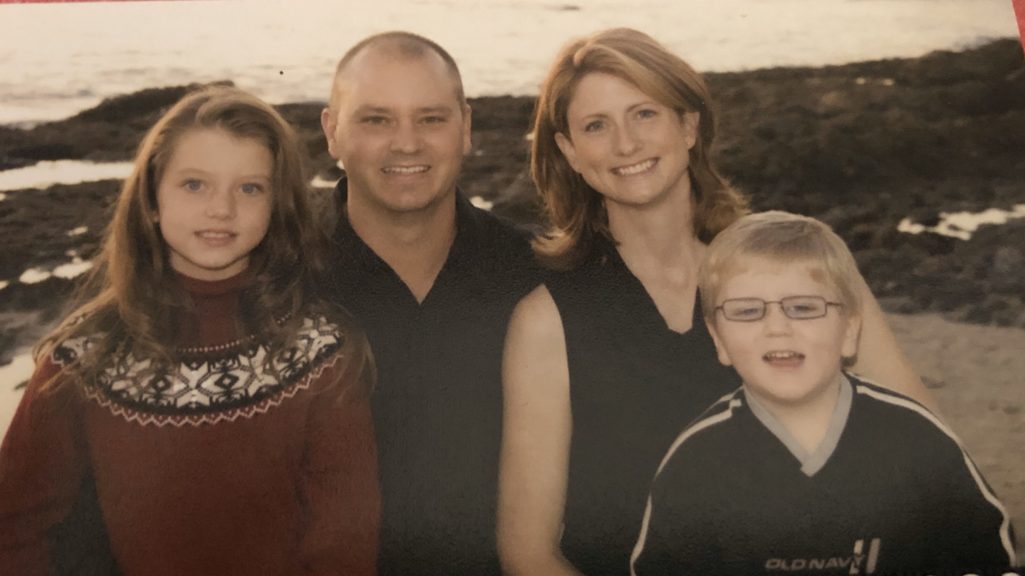
While they waited, Christine got to work researching Alström Syndrome symptoms and immediately knew they had figured it out.
“Alström checked all the boxes: heart failure, flat and wide feet, nystagmus, obesity and delayed developmental milestones – it completely fit,” Christine says.
Six months later, a genetic sequencing test paid for by the foundation Alström Syndrome International confirmed what Christine and Dr. Zadeh suspected – Colten had Alström Syndrome. He was the 972nd person in the world to receive the rare diagnosis. By this point, he was 8 years old.
The Schweers were immediately welcomed into the Alström family, Christine says. They got involved with the foundation that covered Colten’s genetic testing, and families around the country and globe reached out to them. Colten even met one of his current best friends, a boy with Alström from Canada.
Despite the relief of a diagnosis after years of searching, Alström came with some difficulties. The diagnosis meant that Colten’s vision was weak and that his hearing would decline, too. The disease also affects his lungs, kidneys, liver and weight.
“It of course felt horrible at first to me and my husband to learn that Colten has a rare disease, but it was also a relief to know that we had an answer now; there wouldn’t be so many surprises anymore,” Christine recalls.
The Schweers continued to work with Colten’s specialists, finally certain they knew the cause of his symptoms.
Collaboration is key
Christine reflects on the years of searching for answers and, despite the difficult moments, feels thankful for their collaborative care team at CHOC.
“If it weren’t for Dr. Chang suggesting more genetic testing, if he hadn’t advised we see Dr. Zadeh and if it weren’t for the Alström case Dr. Zadeh remembered from years before, we probably wouldn’t have figured it out,” she says.
Christine thanks Dr. Chang for always keeping innovation in mind.
“It would be easy to think inside the box and rely on past test results,” Christine says, “but Dr. Chang always stayed up-to-date with tests and looked at things creatively. It’s a multidisciplinary team approach at CHOC.”
Most importantly, Christine admires the way Colten’s care team relates with him.
“Doctors at CHOC are very personal with Colten,” she says. “They get on his level and take time to get to know him and what he’s been up to. Colten trusts them and wants to make them happy, so it’s always a positive experience for him to see them.”
The approach has resulted in a fruitful partnership between Colten, his parents and his providers.
“We’re all such a good team now. We feel confident we’re doing everything we can possibly be doing for Colten.”
Learning about rare disease at Peds2040
The experience getting Colten’s diagnosis sparked in Christine a connection to the rare disease community. She heard about a rare disease panel planned for the Pediatrics 2040 Conference, an annual conference on innovation in pediatrics spearheaded by Dr. Chang, who had since been appointed CHOC’s Chief Innovation Officer and head of CHOC’s Sharon Disney Lund Medical Intelligence and Innovation Institute (Mi4). Christine expressed interest in attending right away, so Mi4 sponsored her to attend. The experience was invaluable.
“It was a great learning opportunity,” Christine says. “I had lunch with a speaker whose son had a rare cancer, spoke with other families and shared Colten’s story with providers, interns and residents.”
She also learned about CHOC’s partnership with Rady Children’s Hospital to offer microarray testing – a more thorough chromosomal test that can detect rare genetic conditions in kids like Colten during infancy.
Thinking back to Colten’s journey to a diagnosis, Christine felt grateful they had Mi4 and Dr. Chang on their side. Peds2040 highlights the importance of medical innovation to those with rare diseases.
One of the most memorable moments of the conference for Christine was Colten arriving toward the end of the day, when he was able to catch up with Dr. Chang.
Colten today
Today, Colten is a loving, strong-willed, intelligent 13-year-old with a deep love of cars and an amazing memory. These days, he and his family are grateful to be able to go several months between specialist appointments.
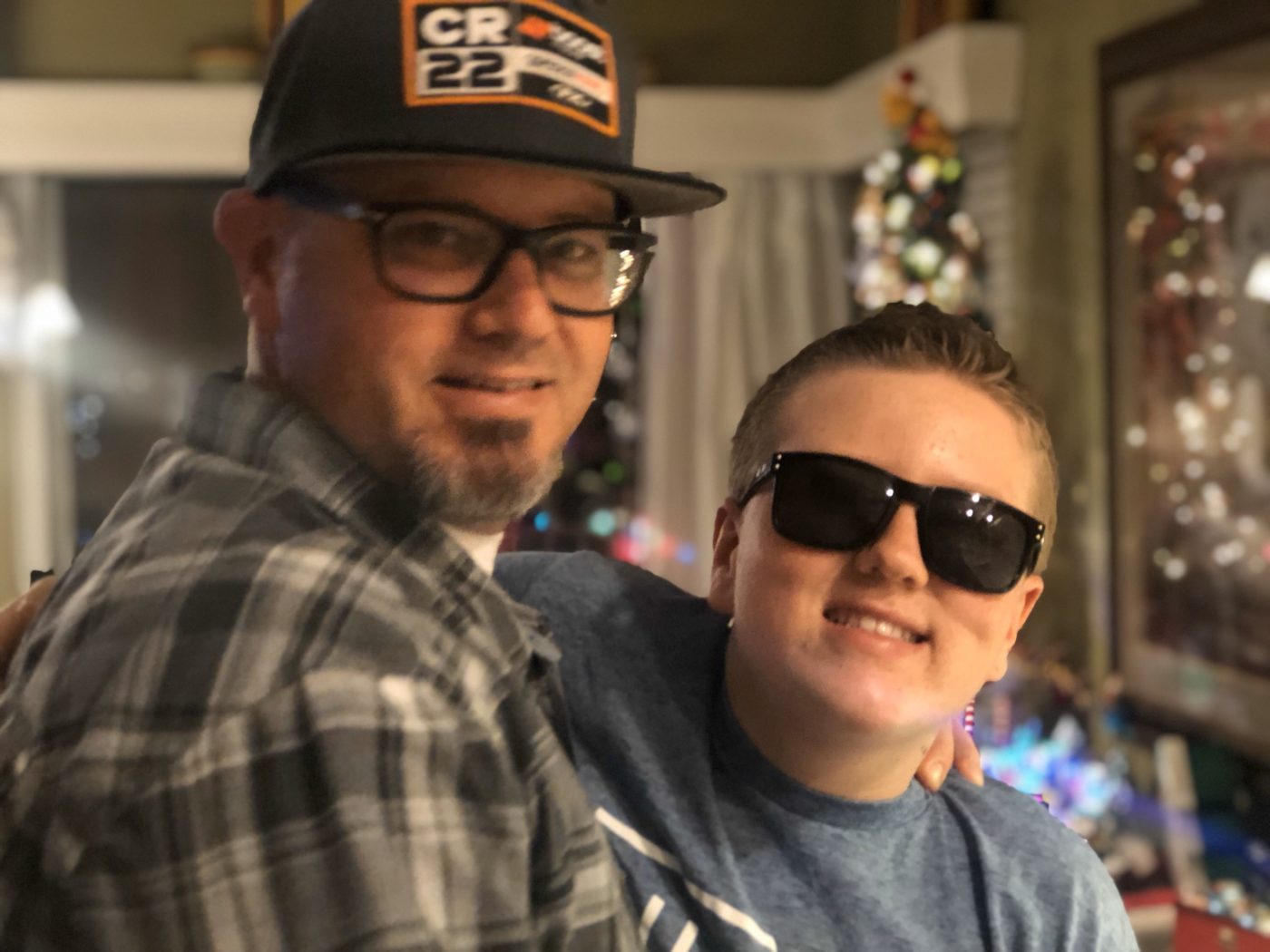
Even so, Christine notes, he faces some difficulties.
He is short for his age, so they’re seeing endocrinologist Dr. Himala Kashmiri to monitor his hormone levels. Additionally, like his vision, Colten’s hearing has waned and will continue to weaken during his teenage years. But, Christine reports, he has learned braille and thriving at it. And, because Alström can affect multiple organs, they continue to watch his heart, liver and kidney function with the help of medication and several specialists.
Colten continues to see Drs. Dwinell and Chang, along with nephrologist Dr. Shoba Narayan, pulmonologist Dr. Chana Chin, gastroenterologist Ellen Schoenfield, NP, registered dietitian Vanessa Chrisman, audiologist Dr. Kristi Panek and a pediatric ophthalmologist.
Nevertheless, the Schweers ensure Colten is empowered to do what he wants.
“We’ve never held him back from doing something,” Christine says. “If he wants to do something, we’re going to make it happen.”
Colten joined a Challenger baseball team for kids with special needs, now one of his favorite activities.
And, despite vision loss, his love of cars is as strong as ever.
“Before, he could instantly tell you what a car was when he saw it” Christine says. “Now, he can identify them by sound.”
Some of Colten’s favorite memories so far include joining his baseball team, going horseback riding and ziplining, and he has plenty more adventures planned.
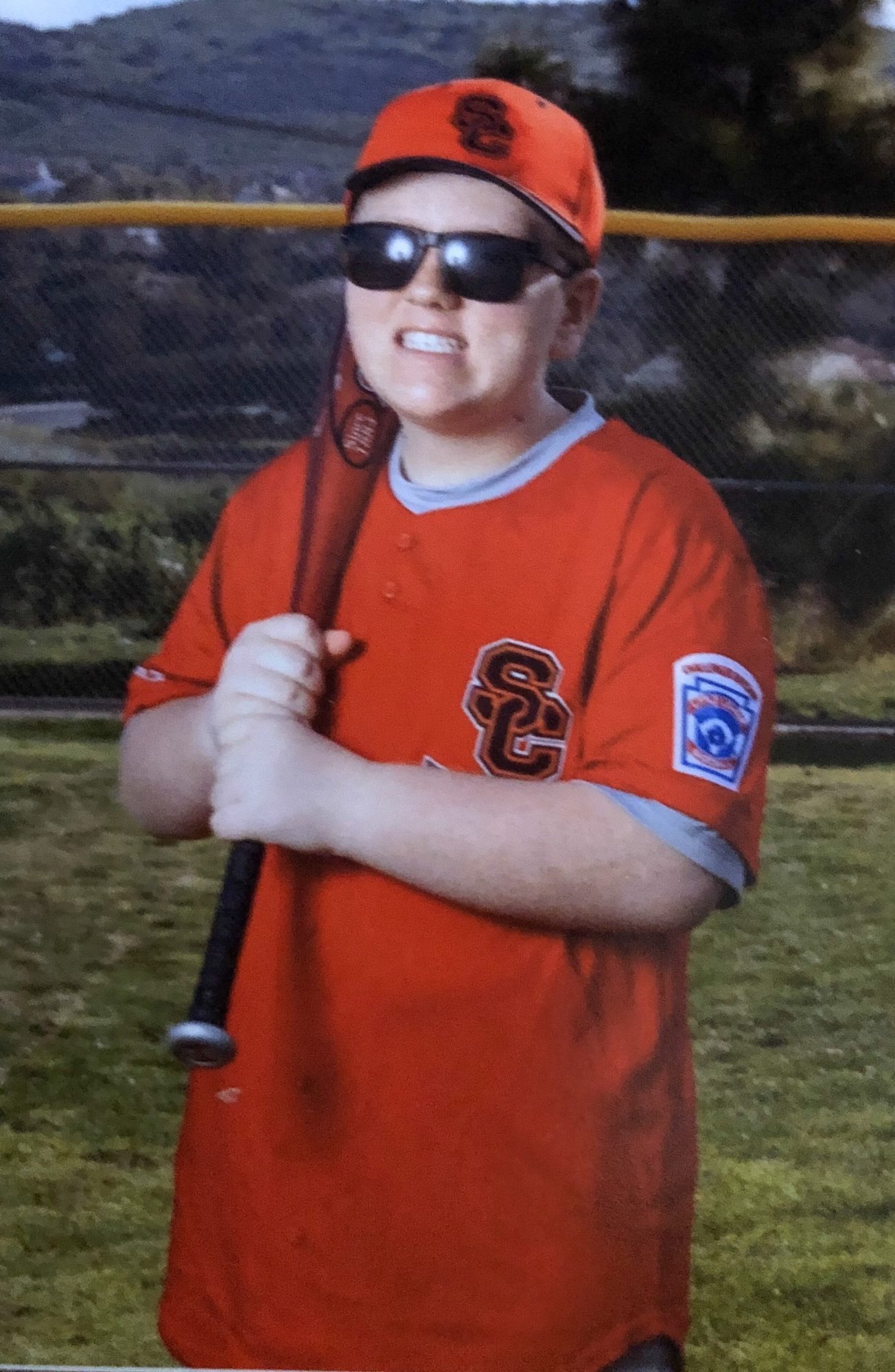
“Despite his challenges, he’s very determined and has a don’t-baby-me, I-can-do-this attitude that impresses me – and makes me a nervous wreck,” Christine adds.
“When Colten was little, his doctors said he might not be able to talk. Now we joke that we have to beg him for five minutes of quiet. He doesn’t stop talking when he’s around his loved ones.”
Advice for other families
Christine looks back at the difficult road to a diagnosis and is now grateful for the community that Alström has brought her family.
“Let yourself grieve after a difficult diagnosis,” she says, “but also try to recognize you’re part of a new family. You’re not alone in this. Know that there are other parents out there who know what this feels like, so don’t try to take it on all by yourself. Despite how it can feel at first, every day is not going to be a bad day.”




